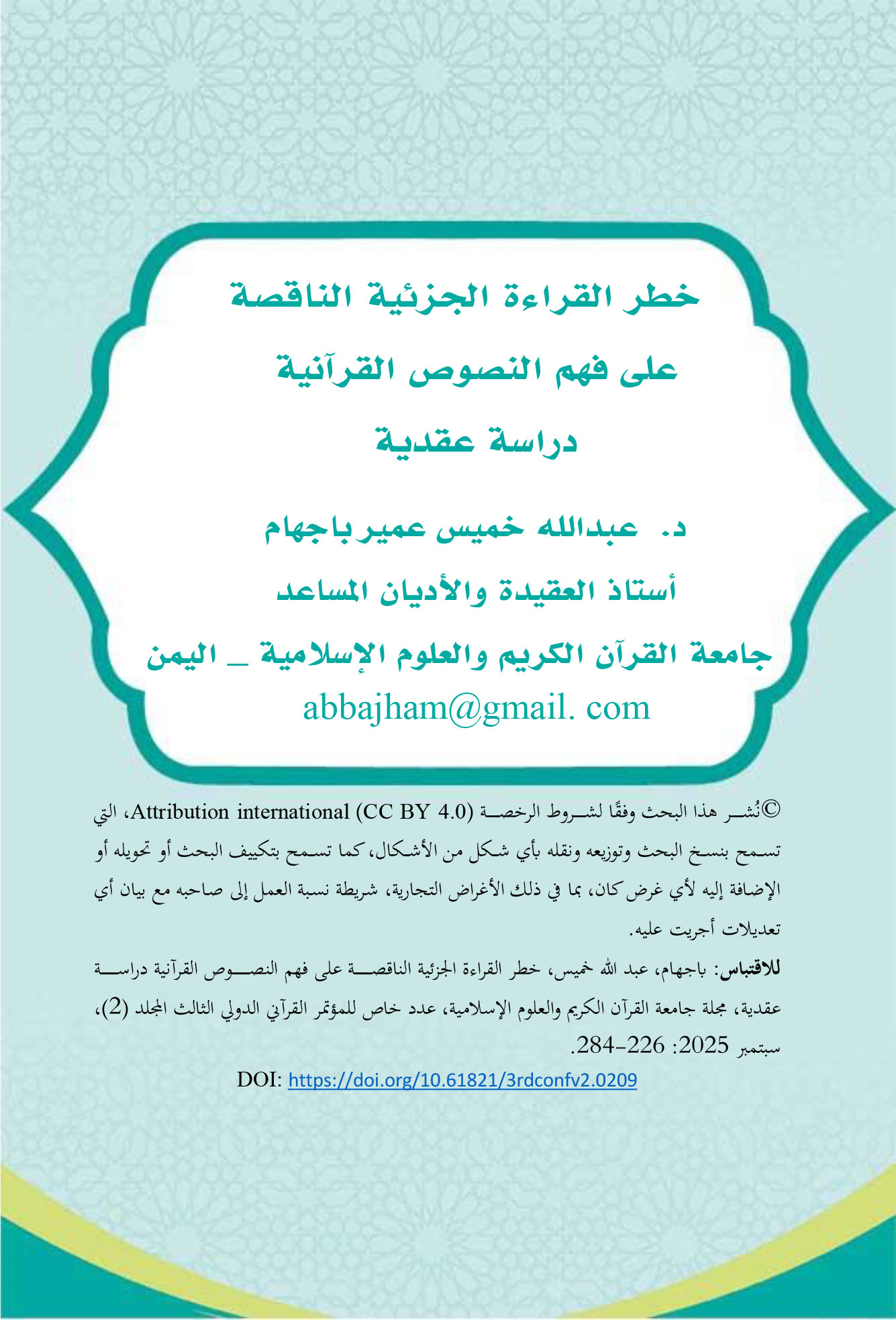The Danger of Incomplete Fragmented Reading in Understanding Qur’anic Texts A Doctrinal Study
DOI:
https://doi.org/10.61821/3rdconfv2.0209Keywords:
Partial, Reading, Qur’anic, Texts, RiskAbstract
The research represents a genuine pursuit of sound intellectual richness, free from doctrinal distortions and ideological deviations. It serves as an enlightening endeavor to promote holistic reading of the verses of the Holy Qur’an. This study offers valuable insights by shedding light on the widespread misinterpretation of Qur’anic texts, particularly through one of the most critical scholarly challenges: the fragmented reading of Qur’anic verses. Such partial readings pose a significant obstacle to achieving balanced understanding, narrowing the interpretive scope and potentially leading to confusion between complementary and opposing dualities—such as revelation and reason, spirit and matter. The research is structured into an introduction and two main sections. The first section addresses the dangers of incomplete and fragmented readings and their impact on understanding Qur’anic texts. The second section explores the comprehensive and holistic approach to interpreting the Qur’an. The researcher arrives at several key findings, the most important of which include: Faith and creed form the foundational and unwavering principles, and the noble methodology for disseminating correct ideas and sound teachings. They act as a safeguard for protecting individuals and societies from doctrinal and intellectual deviations. Fragmented readings distort the meanings of Qur’anic texts and lead to incomplete interpretations, which in turn result in the derivation of deviant beliefs and incorrect inferences from the Qur’an—posing a serious threat to sound doctrine and encouraging misguided or erroneous ideas. The researcher recommends a deep and reflective engagement with the Qur’an, emphasizing the importance of understanding its texts holistically and comprehensively. Scholars are urged to consider verses within their broader context and to connect them with other verses addressing the same subject, in order to arrive at a correct and complete understanding of their meanings.
Downloads

Downloads
Published
Issue
Section
License
Copyright (c) 2025 Journal of the University of Holy Quran and Islamic Sciences

This work is licensed under a Creative Commons Attribution 4.0 International License.
©This article is an open access article distributed under the terms and conditions of the Creative Commons Attribution (CC BY) license












